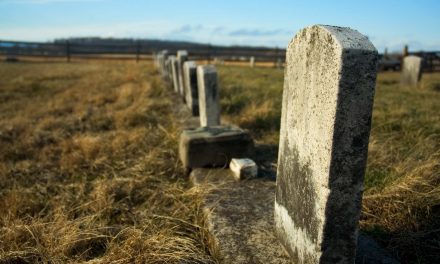
Today marks the beginning of a new year. It was traditionally a moment reserved for hope, renewal, and forward-looking resolutions. But for many Americans, the arrival of 2025 feels less like a celebration and more like the crossing of an ominous threshold.
Gone is the pervasive sense of crisis that marked the first days of previous new years. No sudden spike in COVID-19 cases that killed millions of Americans, no missile strikes raining down on the people of Kyiv, no earthquake shattering the calm of Japan’s towns and cities.
Yet the absence of such catastrophes does little to counterbalance the disquiet that hangs over many Americans. This New Year begins with an extraordinary and deeply unsettling reality: the re-election of a convicted criminal as President of the United States.
AN AUTOCRAT RETURNS TO POWER
The 2024 presidential campaign season was a far cry from the standard election cycle. One candidate was unabashed in his declaration of intent to subvert democracy. He openly threatened political opponents, promised to purge federal agencies of career professionals, and pledged to turn the Department of Justice into his personal tool for vengeance. His rallies, filled with inflammatory rhetoric and veiled threats, bordered on calls for violence.
The American people were not ignorant of these promises. The authoritarian ambitions were not hidden, instead they were flaunted. And still, enough voters were swayed by decades of disinformation, grievance politics, and cultish devotion, to returned him to the highest office in the land.
It was not just a tragedy, it was a betrayal of the ideals upon which the United States of America was founded. But, the American people made their choice, with full knowledge of his criminal conviction and explicit authoritarian pledges, to return Donald J. Trump to the presidency. To many, it signaled the beginning of the end for a democracy that has been fragile yet resilient for nearly 250 years.
THE COST OF NORMALIZING THE UNTHINKABLE
The idea of a convicted felon leading a nation once lauded as a beacon of democracy is, on its face, preposterous. But Trump’s re-election is the culmination of years of erosion in political norms and institutional safeguards. His win represents a victory for those who believe in strongman rule over shared governance, for those who are willing to sacrifice democratic principles in exchange for power.
Trump’s criminal conviction in 2024 should have disqualified him not just legally but morally. That it did not speaks to the success of his years-long campaign to delegitimize truth itself. His cries of “witch hunt” and “fake news” have so thoroughly poisoned the public discourse that for many of his supporters, reality has become irrelevant.
The result is no accident. Authoritarians thrive on sowing confusion and distrust, turning citizens against one another while consolidating power. Trump’s return to the presidency is a testament to the effectiveness of that playbook, and a warning to other democracies around the world.
THE ROLE OF SYSTEMIC FAILURES
Trump’s resurgence cannot be attributed solely to his charisma or political skill. It is the product of a broken system that prioritizes minority rule over majority will. Voter suppression tactics, rampant gerrymandering, and the conservative U.S. Supreme Court’s dismantling of voting protections all played critical roles in Trump’s victory. These systemic failures allowed an indicted, twice-impeached, felon to return to power with a minority mandate.
WHAT LIES AHEAD FOR 2025?
Trump’s plans for his second term are no secret. His so-called “Agenda 47” is a blueprint for authoritarianism. He has vowed to eliminate the independence of federal agencies, target political opponents with criminal investigations, and expand his personal power beyond constitutional limits.
His attacks on the press, judiciary, and Congress were hallmarks of his first term, and they are set to escalate in 2025 and beyond. Trump has made it clear that he sees dissent not as a right but as a crime.
Internationally, America’s reputation as a leader of the free world is in tatters. Allies who once relied on the U.S. as a bulwark against authoritarianism are now bracing for four years of isolationism and chaos. Adversaries like Russia and China are celebrating the demise of democratic norms in the United States, emboldened by Trump’s willingness to undermine alliances and appease dictators.
THE RESISTANCE MUST RISE
If there is any hope for the future, it lies in the hands of those who refuse to accept this new reality. Resistance is not just an option, it is a necessity. Grassroots organizations, advocacy groups, and state governments will need to mobilize to defend what remains of American democracy.
The path forward in 2025 will not be easy. Trump’s hold on the Republican Party, which is little more now than a personality cult, ensures that Congress will be complicit in his agenda. The judiciary, packed with corrupt Trump-appointed judges, will offer little resistance.
But history shows that autocrats are not invincible. Public outcry, sustained protests, and strategic legal challenges can make a difference. Civil disobedience and coordinated labor strikes could counteract Trump’s authoritarian ambitions. Every institution, from the press to the courts to local governments, has a role to play in safeguarding democracy.
A STARK CHOICE
The year 2025 will likely be remembered as a turning point. The choice before the nation is stark: capitulation or resistance. Will America accept the erosion of its democratic foundations, or will it rise to meet the greatest threat to its ideals in modern history? Let 2025 be the year that history remembers not as the death of American democracy, but as the moment when its defenders rose to meet the challenge.
© Photo
Chonlatee42 (via Shutterstock)














